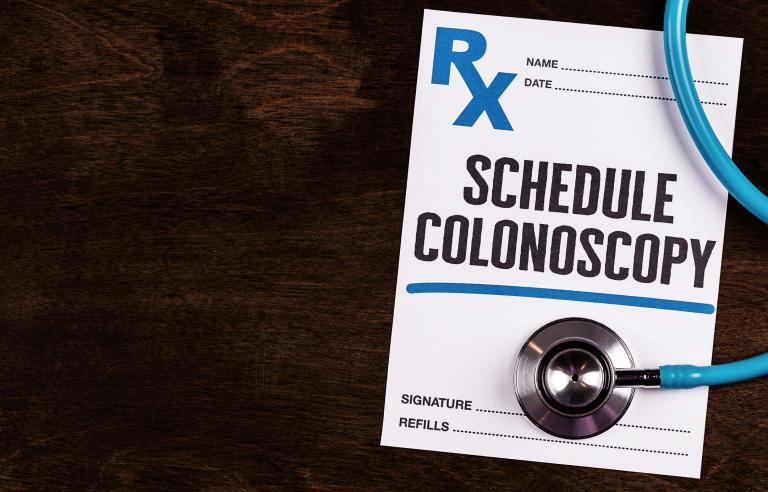Happy. Healthy. Southie.
Supportive and non-judgmental advice from SBCHC's health experts.
Preventing Colorectal Cancer
By: Internal Medicine
Colorectal cancer has a terrifying reputation, and rightly so. It is the second leading cause of cancer deaths for both men and women. Roughly one in twenty people will be diagnosed with this disease at some point in their lives. The encouraging news is that commonly available screening methods exist for early detection. It is speculated that 60% of colon rectal cancer deaths could have been prevented with the right screening.
Colorectal cancer develops from noncancerous polyps, or abnormal growths of tissue, in the colon (the last section of the digestive tract). These polyps usually have no symptoms, but can turn deadly if left untreated. That’s why it’s so important to remove the polyps early on.
The two main ways we screen for colorectal cancer at our Health Center are through colonoscopies and FIT tests. With a colonoscopy, the provider uses a device with a camera that proceeds through the lower part of the patient’s digestive track to check for polyps or other abnormalities. Should the provider identify a polyp, the device has the ability to remove it on the spot. With this, the preparation for the colonoscopy can be hard on patients. Typically the patient will need to use a special laxative to empty his/her colon a day or two in advance of the procedure and will only be allowed to consume certain liquids. For the procedure itself, the patient will be sedated and will need to arrange for a ride home.
A far less intensive method for screening is FIT testing. The patient can take a stool sample at home and send to a lab. The lab will check for blood in the stool which may suggest colon cancer. If a patient is found to have blood in the stool, the provider will likely suggest he/she follow-up with a colonoscopy.
The leading guidelines recommend screening for colon cancer for individuals between the ages of 50 and 75. If a patient’s colonoscopy is normal and the patient is not considered high-risk, our providers would generally recommend you repeat the colonoscopy in 10 years. If polyps are found, we may suggest you repeat the colonoscopy in 3 to 5 years.
These tests may seem inconvenient, but the benefits of catching colorectal cancer early far outweigh the risks of leaving it to chance. While colorectal cancer affects both men and women of all races, there are some specific risk factors. These include:
- Diets high in alcohol, meat, or saturated or low in fiber
- A personal history of cancers (breast, uterine, ovary), digestive disorders (colitis, Crohn’s, IBD), and having previously had polyps
- A family history of colorectal cancer
- Being overweight, smoking, and not exercising regularly
It is important to be aware of one’s own personal risk and realize that many are within our control. For example, now that the weather is getting warmer, one of my favorite ways to stay healthy is by taking my dog for long walks and sharing healthy recipes with friends. If you want to incorporate more exercise, try reaching out to a friend or family member about setting up a regular time to go for a walk, bike ride, or do a free online exercise video (youtube.com has tons of great options!). Teaming up with a buddy is a great way to help reach health goals.
The following resources provide more detailed information on Colorectal cancer:
- https://www.medicalnewstoday.com/articles/155598.php
- https://www.mayoclinic.org/diseases-conditions/colon-cancer/symptoms-cau…
- https://www.cancer.org/cancer/colon-rectal-cancer/about/what-is-colorect…
- https://www.mayoclinic.org/diseases-conditions/colon-polyps/symptoms-cau…
- https://medlineplus.gov/ency/patientinstructions/000704.htm
Contact your PCP in Internal/Adult Medicine or Family Medicine to discuss your screening needs today!
Originally published on June 15, 2019. Last updated February 24, 2025.
